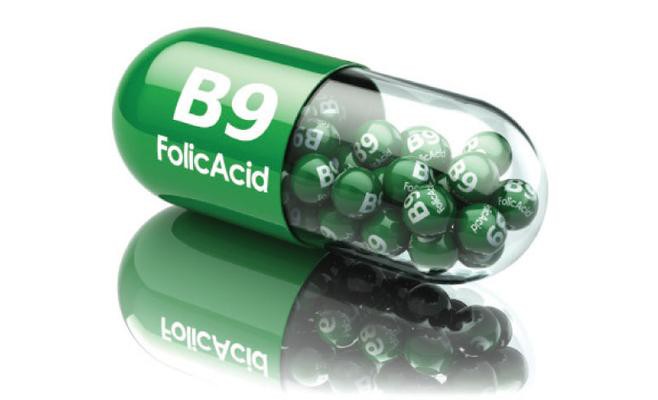Vitamin B9 – What is it? What are The Benefits?

Vitamin B9 – What is it? What are the benefits? Deficiency of vitamin B9 and aliments rich in vitamin B9 that you need know. Folate, or vitamin B9, is one of many essential vitamins. You may also be familiar with folic acid as a form of vitamin b9; folic acid is the synthetic version used for food fortification and supplements.
Folate is important because it plays a role in DNA synthesis and repair. It encourages cell and tissue growth. In fact, these benefits barely scratch the surface and its effects are far reaching.
That bring us to nine incredible health benefits of vitamin b9. Vitamin B9 – What is it? What are the benefits? Deficiency of vitamin B9 and aliments rich in vitamin B9 that you need know:
Supports Normal Fetal Development: Folate plays an integral role in fetal development and the benefits for pregnant women and their offspring cannot be understated. vitamin b9 deficiency during early pregnancy can lead to neural tube defects.
This is a serious problem that can lead to pregnancy termination or a baby born with spina bifida. The good news? Studies have found increased folate levels from one month prior to conception to 3 months afterward can reduce the chance of these defects by 50%.
Promotes Sperm Viability: Studies exploring the role of vitamin b9 in spermatogenesis have linked it to sperm health and function. Men with a lower folate intake have been shown to have sperm with incorrect chromosomal structure. A 2012 study reported that previously infertile patients who took a nutritional supplement, which included folic acid, experienced significant improvement in sperm motility and successfully achieved pregnancy with their partners.
Great for the Heart: Folate helps metabolize homocysteine into methionine, an essential amino acid. Without adequate vitamin b9, homocysteine levels increase. You don’t want this; homocysteine has been linked to atherosclerosis and cardiovascular problems. The evidence is clear, to encourage cardiovascular health by facilitating the breaking down of homocysteine, vitamin b9 is incredible.
May Reduce the Risk of Stroke: Not only is homocysteine bad for the heart, it can lead to stroke. An overabundance of homocysteine, or hyperhomocysteinemia, results from a breakdown in the methionine-homocysteine metabolism.
This results in increased chances of blood vessel damage and blood clotting. Although stroke can have many causes and no one measure is a complete safeguard, vitamin b9, or the supplemental form folic acid, have been recommended for use to reduce the risk.
Provides Neurological Support: Research suggests there may be a link between vitamin b9 levels and neural health. A Korean study of elderly patients found that those suffering from dementia had the highest levels of homocysteine, and the lowest vitamin b9 levels. Patients in the control group who did not suffer from dementia had higher vitamin b9 levels.
Helps Perinatal Mood Management: Often, perinatal depression cannot be addressed with pharmaceuticals due to concern for the child. This has led researchers to seek out more safe, natural alternatives. vitamin b9, along with other B vitamins, is known to encourage the creation and absorption of neurotransmitters. Some experimental studies have indicated that micronutrients, including folic acid, can improve symptoms and outcomes.
Great for Colon Health: Could vitamin b9 be good for your colon? A 2013 case control study linked folate intake to gene activation that alters the chances of developing colorectal cancer. It’s also a testament to the importance of diet at the cellular level.
Reduces the Risk of Age-Related Macular Degeneration: A Harvard Medical School trial of women with a risk of age-related macular degeneration (AMD) explored the impact of B vitamin therapy (including folic acid, vitamin B6, and B12).
The control group had a higher incidence of AMD than the group taking the B vitamin therapy. Researchers concluded that daily supplementation might help the fight in reducing the risk of AMD.
Deficiency signs of Vitamin B9: Although many foods are fortified with this vitamin, its lack is quite common compared to other B vitamins A high consumption is recommended especially in the growth phase, and the main diseases related to deficiency of this vitamin are:
- Anemia;
- Blood;
- Depression;
- Diarrhea;
- Fatigue;
- Insomnia;
- Forgetfulness;
- hair loss;
- Irritability;
- Nausea;
- Weakness;
- Growth poor;
The information on this website has not been evaluated by the Food & Drug Administration or any other medical body. We do not aim to diagnose, treat, cure or prevent any illness or disease. Information is shared for educational purposes only. You must consult your doctor before acting on any content on this website, especially if you are pregnant, nursing, taking medication, or have a medical condition.
